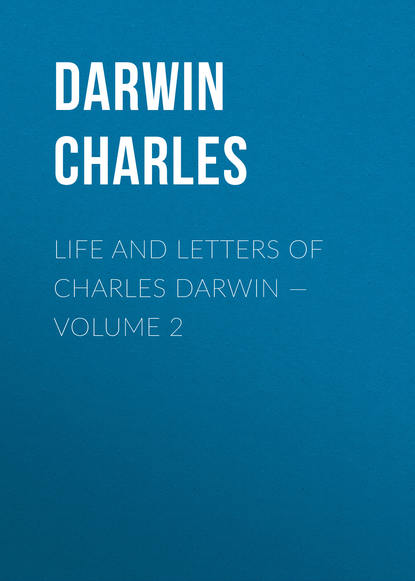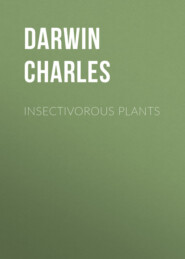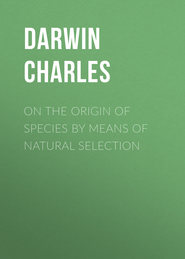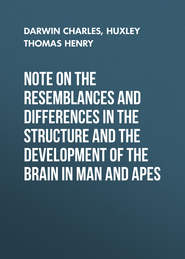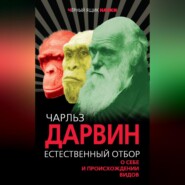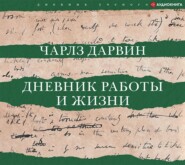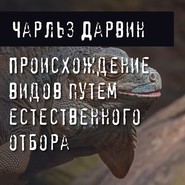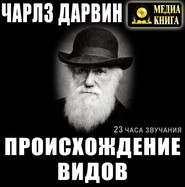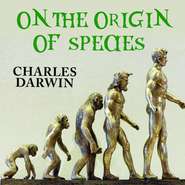По всем вопросам обращайтесь на: info@litportal.ru
(©) 2003-2024.
✖
Life and Letters of Charles Darwin — Volume 2
Настройки чтения
Размер шрифта
Высота строк
Поля
I find from my father's accounts that 100 pounds was presented to the Naples Station.
He received also several tokens of respect and sympathy of a more private character from various sources. With regard to such incidents and to the estimation of the public generally, his attitude may be illustrated by a passage from a letter to Mr. Romanes: — (The lecture referred to was given at the Dublin meeting of the British association.)
"You have indeed passed a most magnificent eulogium upon me, and I wonder that you were not afraid of hearing 'oh! oh!' or some other sign of disapprobation. Many persons think that what I have done in science has been much overrated, and I very often think so myself; but my comfort is that I have never consciously done anything to gain applause. Enough and too much about my dear self."
Among such expressions of regard he valued very highly the two photographic albums received from Germany and Holland on his birthday, 1877. Herr Emil Rade of Munster, originated the idea of the German birthday gift, and undertook the necessary arrangements. To him my father wrote (February 16, 1877): —
"I hope that you will inform the one hundred and fifty-four men of science, including some of the most highly honoured names in the world, how grateful I am for their kindness and generous sympathy in having sent me their photographs on my birthday."
To Professor Haeckel he wrote (February 16, 1877): —
The album has just arrived quite safe. It is most superb. (The album is magnificently bound and decorated with a beautifully illuminated title page, the work of an artist, Herr A. Fitger of Bremen, who also contributed the dedicatory poem.) It is by far the greatest honour which I have ever received, and my satisfaction has been greatly enhanced by your most kind letter of February 9... I thank you all from my heart. I have written by this post to Herr Rade, and I hope he will somehow manage to thank all my generous friends."
To Professor A. van Bemmelen he wrote, on receiving a similar present from a number of distinguished men and lovers of Natural History in the Netherlands: —
"Sir,
I received yesterday the magnificent present of the album, together with your letter. I hope that you will endeavour to find some means to express to the two hundred and seventeen distinguished observers and lovers of natural science, who have sent me their photographs, my gratitude for their extreme kindness. I feel deeply gratified by this gift, and I do not think that any testimonial more honourable to me could have been imagined. I am well aware that my books could never have been written, and would not have made any impression on the public mind, had not an immense amount of material been collected by a long series of admirable observers; and it is to them that honour is chiefly due. I suppose that every worker at science occasionally feels depressed, and doubts whether what he has published has been worth the labour which it has cost him, but for the few remaining years of my life, whenever I want cheering, I will look at the portraits of my distinguished co-workers in the field of science, and remember their generous sympathy. When I die, the album will be a most precious bequest to my children. I must further express my obligation for the very interesting history contained in your letter of the progress of opinion in the Netherlands, with respect to Evolution, the whole of which is quite new to me. I must again thank all my kind friends, from my heart, for their ever-memorable testimonial, and I remain, Sir,
Your obliged and grateful servant, CHARLES R. DARWIN."
[In the June of the following year (1878) he was gratified by learning that the Emperor of Brazil had expressed a wish to meet him. Owing to absence from home my father was unable to comply with this wish; he wrote to Sir J.D. Hooker: —
"The Emperor has done so much for science, that every scientific man is bound to show him the utmost respect, and I hope that you will express in the strongest language, and which you can do with entire truth, how greatly I feel honoured by his wish to see me; and how much I regret my absence from home."
Finally it should be mentioned that in 1880 he received an address personally presented by members of the Council of the Birmingham Philosophical Society, as well as a memorial from the Yorkshire Naturalist Union presented by some of the members, headed by Dr. Sorby. He also received in the same year a visit from some of the members of the Lewisham and Blackheath Scientific Association, — a visit which was, I think, enjoyed by both guests and host.]
MISCELLANEOUS LETTERS — 1876-1882.
[The chief incident of a personal kind (not already dealt with) in the years which we are now considering was the death of his brother Erasmus, who died at his house in Queen Anne Street, on August 26th, 1881. My father wrote to Sir J.D. Hooker (August 30): —
"The death of Erasmus is a very heavy loss to all of us, for he had a most affectionate disposition. He always appeared to me the most pleasant and clearest headed man, whom I have ever known. London will seem a strange place to me without his presence; I am deeply glad that he died without any great suffering, after a very short illness from mere weakness and not from any definite disease. ("He was not, I think, a happy man, and for many years did not value life, though never complaining." — From a letter to Sir Thomas Farrer.)
"I cannot quite agree with you about the death of the old and young. Death in the latter case, when there is a bright future ahead, causes grief never to be wholly obliterated."
An incident of a happy character may also be selected for especial notice, since it was one which strongly moved my father's sympathy. A letter (December 17, 1879) to Sir Joseph Hooker shows that the possibility of a Government Pension being conferred on Mr. Wallace first occurred to my father at this time. The idea was taken up by others, and my father's letters show that he felt the most lively interest in the success of the plan. He wrote, for instance, to Mrs. Fisher, "I hardly ever wished for anything more than I do for the success of our plan." He was deeply pleased when this thoroughly deserved honour was bestowed on his friend, and wrote to the same correspondent (January 7, 1881), on receiving a letter from Mr. Gladstone announcing the fact: "How extraordinarily kind of Mr. Gladstone to find time to write under the present circumstances. (Mr. Gladstone was then in office, and the letter must have been written when he was overwhelmed with business connected with the opening of Parliament (January 6). Good heavens! how pleased I am!"
The letters which follow are of a miscellaneous character and refer principally to the books he read, and to his minor writings.]
CHARLES DARWIN TO MISS BUCKLEY (MRS. FISHER). Down, February 11 [1876].
My dear Miss Buckley,
You must let me have the pleasure of saying that I have just finished reading with very great interest your new book. ('A Short History of Natural Science.') The idea seems to me a capital one, and as far as I can judge very well carried out. There is much fascination in taking a bird's eye view of all the grand leading steps in the progress of science. At first I regretted that you had not kept each science more separate; but I dare say you found it impossible. I have hardly any criticisms, except that I think you ought to have introduced Murchison as a great classifier of formations, second only to W. Smith. You have done full justice, and not more than justice, to our dear old master, Lyell. Perhaps a little more ought to have been said about botany, and if you should ever add this, you would find Sachs' 'History,' lately published, very good for your purpose.
You have crowned Wallace and myself with much honour and glory. I heartily congratulate you on having produced so novel and interesting a work, and remain,
My dear Miss Buckley, yours very faithfully, CH. DARWIN.
CHARLES DARWIN TO A.R. WALLACE. [Hopedene] (Mr. Hensleigh Wedgwood's house in Surrey.), June 5, 1876.
My dear Wallace,
I must have the pleasure of expressing to you my unbounded admiration of your book ('Geographical Distribution,' 1876.), though I have read only to page 184 — my object having been to do as little as possible while resting. I feel sure that you have laid a broad and safe foundation for all future work on Distribution. How interesting it will be to see hereafter plants treated in strict relation to your views; and then all insects, pulmonate molluscs and fresh-water fishes, in greater detail than I suppose you have given to these lower animals. The point which has interested me most, but I do not say the most valuable point, is your protest against sinking imaginary continents in a quite reckless manner, as was stated by Forbes, followed, alas, by Hooker, and caricatured by Wollaston and [Andrew] Murray! By the way, the main impression that the latter author has left on my mind is his utter want of all scientific judgment. I have lifted up my voice against the above view with no avail, but I have no doubt that you will succeed, owing to your new arguments and the coloured chart. Of a special value, as it seems to me, is the conclusion that we must determine the areas, chiefly by the nature of the mammals. When I worked many years ago on this subject, I doubted much whether the now called Palaearctic and Nearctic regions ought to be separated; and I determined if I made another region that it should be Madagascar. I have, therefore, been able to appreciate your evidence on these points. What progress Palaeontology has made during the last 20 years; but if it advances at the same rate in the future, our views on the migration and birth-place of the various groups will, I fear, be greatly altered. I cannot feel quite easy about the Glacial period, and the extinction of large mammals, but I must hope that you are right. I think you will have to modify your belief about the difficulty of dispersal of land molluscs; I was interrupted when beginning to experimentize on the just hatched young adhering to the feet of groun-roosting birds. I differ on one other point, viz. in the belief that there must have existed a Tertiary Antarctic continent, from which various forms radiated to the southern extremities of our present continents. But I could go on scribbling forever. You have written, as I believe, a grand and memorable work which will last for years as the foundation for all future treatises on Geographical Distribution.
My dear Wallace, yours very sincerely, CHARLES DARWIN.
P.S. — You have paid me the highest conceivable compliment, by what you say of your work in relation to my chapters on distribution in the 'Origin,' and I heartily thank you for it.
[The following letters illustrate my father's power of taking a vivid interest in work bearing on Evolution, but unconnected with his own special researches at the time. The books referred to in the first letter are Professor Weismann's 'Studien zur Descendenzlehre' (My father contributed a prefatory note to Mr. Meldola's translation of Prof. Weismann's 'Studien,' 1880-81.), being part of the series of essays by which the author has done such admirable service to the cause of evolution:]
CHARLES DARWIN TO AUGUST WEISMANN. January 12, 1877.
... I read German so slowly, and have had lately to read several other papers, so that I have as yet finished only half of your first essay and two-thirds of your second. They have excited my interest and admiration in the highest degree, and whichever I think of last, seems to me the most valuable. I never expected to see the coloured marks on caterpillars so well explained; and the case of the ocelli delights me especially...
... There is one other subject which has always seemed to me more difficult to explain than even the colours of caterpillars, and that is the colour of birds' eggs, and I wish you would take this up.
CHARLES DARWIN TO MELCHIOR NEUMAYR (Professor of Palaeontology at Vienna.), VIENNA. Down, Beckenham, Kent, March 9, 1877.
Dear Sir,
From having been obliged to read other books, I finished only yesterday your essay on 'Die Congerien,' etc. ('Die Congerien und Paludinenschichten Slavoneins.' 4to, 1875.)
I hope that you will allow me to express my gratitude for the pleasure and instruction which I have derived from reading it. It seems to me to be an admirable work; and is by far the best case which I have ever met with, showing the direct influence of the conditions of life on the organization.
Mr. Hyatt, who has been studying the Hilgendorf case, writes to me with respect to the conclusions at which he has arrived, and these are nearly the same as yours. He insists that closely similar forms may be derived from distinct lines of descent; and this is what I formerly called analogical variation. There can now be no doubt that species may become greatly modified through the direct action of the environment. I have some excuse for not having formerly insisted more strongly on this head in my 'Origin of Species,' as most of the best facts have been observed since its publication.
With my renewed thanks for your most interesting essay, and with the highest respect, I remain, dear Sir,
Yours very faithfully, CHARLES DARWIN.
CHARLES DARWIN TO E.S. MORSE. Down, April 23, 1877.
My dear Sir,
You must allow me just to tell you how very much I have been interested with the excellent Address ("What American Zoologists have done for Evolution," an Address to the American Association for the Advancement of Science, August, 1876. Volume xxv. of the Proceedings of the Association.) which you have been so kind as to send me, and which I had much wished to read. I believe that I had read all, or very nearly all, the papers by your countrymen to which you refer, but I have been fairly astonished at their number and importance when seeing them thus put together. I quite agree about the high value of Mr. Allen's works (Mr. J.A. Allen shows the existence of geographical races of birds and mammals. Proc. Boston Soc. Nat. Hist. volume xv.), as showing how much change may be expected apparently through the direct action of the conditions of life. As for the fossil remains in the West, no words will express how wonderful they are. There is one point which I regret that you did not make clear in your Address, namely what is the meaning and importance of Professors Cope and Hyatt's views on acceleration and retardation. I have endeavoured, and given up in despair, the attempt to grasp their meaning.
Permit me to thank you cordially for the kind feeling shown towards me through your Address, and I remain, my dear Sir,
Yours faithfully, CH. DARWIN.
[The next letter refers to his 'Biographical Sketch of an Infant,' written from notes made 37 years previously, and published in 'Mind,' July, 1877. The article attracted a good deal of attention, and was translated at the time in 'Kosmos,' and the 'Revue Scientifique,' and has been recently published in Dr. Krause's 'Gesammelte kleinere SchrifteN von Charles Darwin,' 1887:]
CHARLES DARWIN TO G. CROOM ROBERTSON. (The editor of 'Mind.') Down, April 27, 1877.
Dear Sir,
I hope that you will be so good as to take the trouble to read the enclosed MS., and if you think it fit for publication in your admirable journal of 'Mind,' I shall be gratified. If you do not think it fit, as is very likely, will you please to return it to me. I hope that you will read it in an extra critical spirit, as I cannot judge whether it is worth publishing from having been so much interested in watching the dawn of the several faculties in my own infant. I may add that I should never have thought of sending you the MS., had not M. Taine's article appeared in your Journal. (1877, page 252. The original appeared in the 'Revue Philosophique' 1876.) If my MS. is printed, I think that I had better see a proof.





